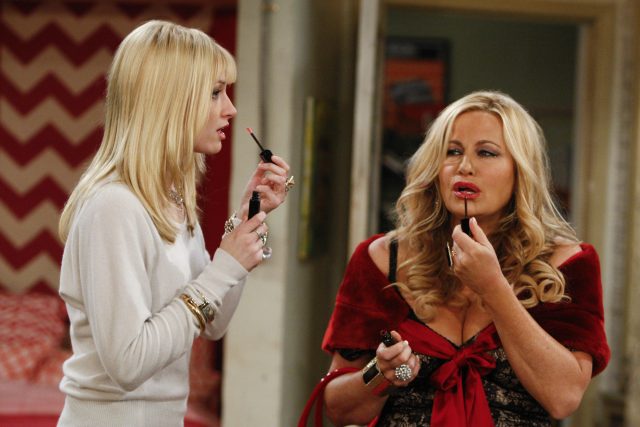
Botox is the most studied and popular cosmetic technique. However, there are still myths that the drug is a poison that is not eliminated from the body or that you become addicted to Botox. We asked the most frequently asked questions about Botox to Natalya Mytsyk, dermatovenerologist and beautician at Real Clinic.

Natalya Mytsyk
1. Is Botox toxic?
The drug injected during the botulinum treatment procedure is indeed a poison itself (and one of the most terrible poisons in the world, secreted by the bacterium Clostridium botulinum). But during botulinum therapy, strictly low, clearly adjusted dosages of the drug are used; this is more similar to homeopathic ones compared to the effect of the poison itself.
This is one of the most effective procedures invented in cosmetology, because it tries to eliminate the cause of early age-related changes in the face, namely muscle hypertonicity. If nothing is done about it, multiple wrinkles, premature skin thinning and sagging will occur. Therefore, timely application of botulinum treatment provides many benefits and ensures that the appearance is preserved for many years.
2. How long does the effect of Botox last?
The result of the resulting muscle relaxation effect lasts approximately three months, according to official data. This is the standard average time. But the process is quite individual: for some, facial expressions return after the stated “average” three months, for others the effect lasts six months.
3. Is Botox addictive?

In general, such a possibility exists: it is possible to achieve the addictive effect of botulinum therapy (these are the cases described in medical practice). As a rule, this is due to the fact that many patients use low-quality drugs that contain a large amount of protein components, so as a result of their use the following may occur: when the procedure is performed for the first time, an excellent result is achieved, the second – a little worse, the third – botulinum toxin worsens and the next time the skin does not react at all to the medicine used or to others.
To avoid this rare but unpleasant situation of “addiction to botulinum therapy”, you need to use quality medications and comply with the intervals of procedures recommended by your doctor. As a rule, botulinum treatment occurs in two stages: the first – with the application of the drug and the second – after two weeks of correction. After that you need to take a break for at least three months. Because frequent injection of the drug may cause the development of a condition such as insensitivity to botulinum treatment.
4. If you do Botox once, will you have to do it for life?
It is not necessary to do botulinum therapy throughout your life, but you will most likely have such a desire. When you see the desired result and want to return the effect obtained after the first correction, a phenomenon called needle sticking occurs.
But if the question is about the fear “if I do not take the next procedure in six months, I will be worse than before,” these worries are in vain. The mechanism of action of Botox is simple: The doctor applies botulinum treatment, allowing the muscles to relax. Since the patterns of facial behavior are preserved, most likely, when facial expressions return, the person will again see facial wrinkles on his face – in those places where the muscle entered its “habitual” hypertonicity.
5. Does Botox harden your face?

It depends on what the procedure is requested for and how the doctor does it. The beautician works specifically on each muscle: we can close one muscle after another (for example, the “proud” muscle that causes horizontal wrinkles to appear on the forehead), or we can perform full-face botulinum treatment in high doses and limit facial expression. all facial expressions.
6. When can you start using Botox?
Botulinum treatment can be started at the age of 18 if there are no contraindications to this procedure (primarily pregnancy and breastfeeding). Let me give you an example: if a patient has active facial expressions (for example, his forehead is constantly frowning), this is not yet an indication for botulinum treatment. But the presence of static wrinkles is a reason to seek advice from a beautician when a person goes to the mirror in the morning and sees, for example, a horizontal wrinkle on the forehead or long “crow’s feet” around the eyes.
7. Doesn’t Botox work? So what should we do then?
There is such a thing as botulinum protein resistance, but the percentage of patients with this quality is very small. Patients often confuse the minor results of the procedure with this: after botulinum treatment, facial expressions quickly return and the patient thinks that the botulinum toxin did not work. But this is not entirely true. There was an effect, but it was not that noticeable and not permanent. This may occur due to the use of an inappropriate technique and an inappropriate number of units to administer the drug.
8. Does Botox raise or lower the eyebrows?

With the help of botulinum protein, you can both “raise” and “lower” your eyebrows. Now, of course, people are coming more often with requests for lifts, but there are also requests for the side ends of the eyebrows to be lowered to achieve a bold look. But more popular requests are to maintain or lift the position of the eyebrows. With botulinum treatment, this can be done by closing the suppressive muscles that lower the eyebrows and activating the lifting muscles with certain techniques.
9. Does Botox accumulate in the body?
No, it does not accumulate in the body. More than 30 years of experience using botulinum therapy allows us to call it one of the most studied techniques in aesthetic medicine.
10. Can Botox be applied to the lips?
Botulinum protein is not injected into the lips because there is nothing to loosen in the lips. Fillers based on hyaluronic acid or biorevitalizant are injected into the lips. So “Botox on the lips” is an established expression, completely ignorant in terms of procedure.
Source: People Talk
I’m Roger Gritton, and I’ve been writing for the The Fashion Vibes for over 5 years now. My specialty is beauty news; I’m passionate about covering the latest trends, products, and innovations in the industry. In my time there, I’ve become known as an authority on all things beauty-related.
I love discovering new experts to interview, researching up-and-coming ingredients and techniques that are making their way onto our beauty shelves and highlighting people who are making a difference in the world of cosmetics. My work has appeared not only on The Fashion Vibes, but also several other publications including the New York Times Magazine, Allure Magazine and Refinery29.





